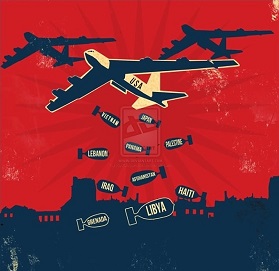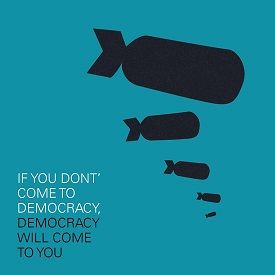Wall Street Journal Urges War on Syria
Imperial warriors, apologists and supporters never say they're sorry. They want more nations attacked. It's the American way.
Perhaps publishing it was strategically timed. It comes with John Kerry in the Middle East. He'll be there through Sunday.
He met with foreign ministers of 11 so-called Friends of Syria countries and opposition group representatives. In Jerusalem, he discussed Syria with Netanyahu.
At the same time, the suspicious Woolrich London killing occurred. Another article suggested a possible false flag. The Journal op-ed urges war on Syria. So did others discussed below.
On May 22, Journal editors gave Jack Keane and Danielle Pletka feature op-ed space. They took full advantage. They headlined "How to Stop Assad's Slaughter." Keane's a retired general. Formerly he served as US Army's vice chief of staff. Pletka is the American Enterprise Institute's (AEI) foreign and defense policy studies vice president. AEI has enormous influence. It advances Washington's imperial agenda. It's consistently hawkish. It was a leading Bush administration foreign policy architect. It was instrumental in promoting war on Iraq. It supports regime change in Syria and Iran. More on the Keane/Pletka article below.



























